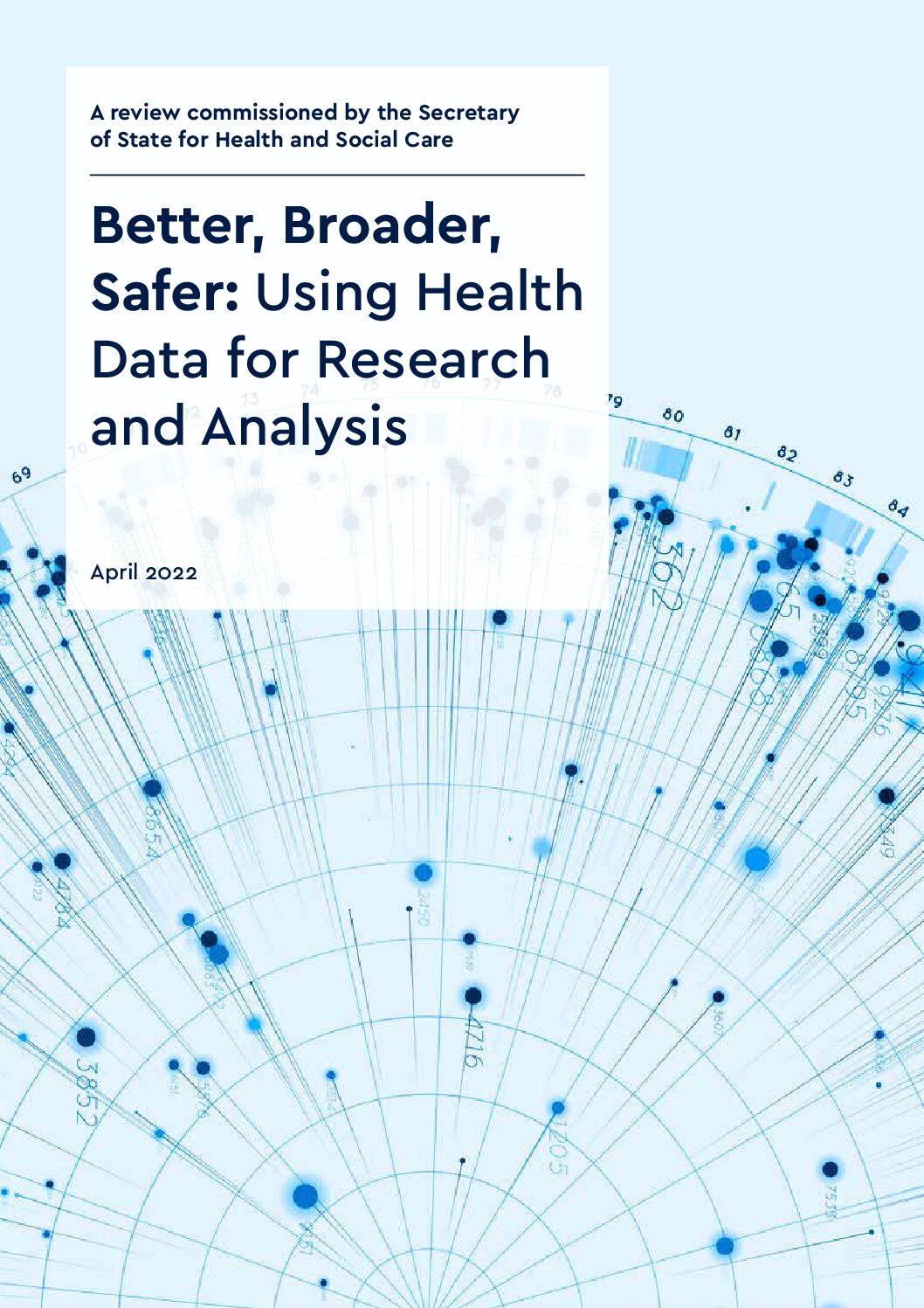The NHS is the next thing to a religion.
If it’s true, the Holy Grail is the answer to the five ‘what’ questions;
- What made us unwell
- What did we do to fix us up
- What worked
- What did it cost
- What do we want to do again
The answer to numbers 2,3,4,5 have been the mission of the great messiah of data, Ben Goldacre, who has, at last, published his testament; Better, Broader, Safer: Using Health Data for Research and Analysis.
Over 200 pages…. crammed-in, tiny print… a horrible landscape layout… arranged, I’d guess, by a geek with a 32 inch iMac.
By the time yer finished yer saying prayers to St Lucy. It’s a read, only for the determined… with thirty recommendations.
I know, thirty… don’t say it.
Central theme?
How can we reassure the public, to trust us, that if we make better use of the unique treasure-trove of health-records, researching and learning the answers to questions 2 to 5, we can have safer, quicker, cost effective care…
… without the fact you have a bunion, or a spot on yer thing, appearing on the front page of the Mirror.
The solution is simple; instead of the analysts taking the data to work on, they go to the data.
Work inside a secure platform called a Trusted Research Environment. It’s what the ONS have done for years… it works.
That’s it, really. But, St Ben performs the miracle of the pages… turns a paragraph into a magnum opus and a geek-fest.
He preaches; ‘trust cannot be earned through communications and public engagement alone’.
How else? Prayer, perhaps?
Will the 30 recommendations be adopted?
We don’t have a data strategy and the bloke who thinks 20 year old technology is a miracle, is writing it and may or may not incorporate this into his pastoral letter.
St Ben and his cult followers; more than 200 small-group or individual interviews, eight open focus-groups, over 100 written submissions and twelve disciples, say… the NHS has made a mess of ‘doing-data’.
As far as I can remember, there’s never been a major data breach but a lot of people don’t trust… the system… the NHS… the government… cult followers… geeks… big-pharma? Dunno.
The review points out;
‘… [there are] very large numbers of patients, opting out of their records ever being shared outside of their GP practice…’
It was about three million by the end of last year.
St Ben says; opt-outs at this scale will compromise the usefulness of the data. In a population of 60m I find that hard to believe. But I’m not a saint…
… however, I do believe…
… people understand; your data is of no real interest or importance. Your data, compared to my data, if you’re an old geezer like me, may be of some interest but…
… all of our data, taken together and used with care, can give us safer, better, more effective healthcare.
In fact, I’m know the public ‘get’ data.
Buy a set of saucepans on Amazon and they’ll send you links to cook-books…
… because they ‘do’ data better than anyone and no one ever reads the three hundred yards of Amazon small print. We all click to agree this;
‘As part of the Amazon Services, we will recommend features, products, and services, including third part ads that might be of interest to you, identify your preferences, and personalise your experience.’
… and we have no reason not to trust them… I think.
That leaves us with how to answer the tough question, number 1, of my five. The most important one. The St Benolites duck; what makes us sick, how do we stop it.
What would Amazon do?
They’d link-up my credit card, to my Ocado order, they’d know I’m buying ten bags of crisps a week, three bottles of scotch, six visits to Starbucks and from Domino, five deep pan Hawaiians…
… they’d flag the public health people, who’d send a nice nurse with advice and a yellow card.
That’s how to answer the number one question and perform miracles with data… but it’s devilish difficult.
News and Comment from Roy Lilley
Contact Roy – please use this e-address roy.lilley@nhsmanagers.net
Reproduced at thetrainingnet.com by kind permission of Roy Lilley.








